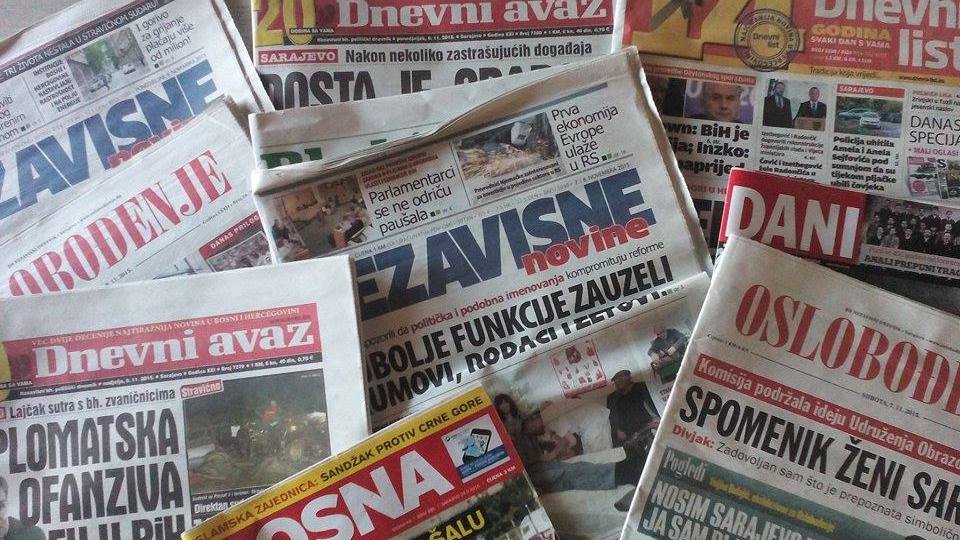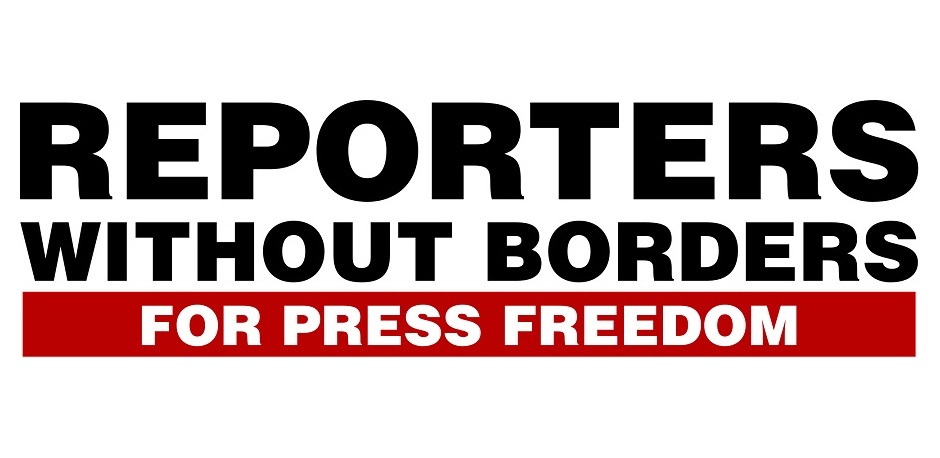SARAJEVO, 12.02.2018.- Considering the number of printed, electronic and new media sources, we cannot say that media market in Bosnia and Herzegovina is prose and keel, that there is no media pluralism, but also media pluralism that does not follow pluralism in media.
Namely, there are 43 television stations in Bosnia and Herzegovina broadcasting their program through ground radio diffusion transmission and three are 38 TV stations broadcasting their program through other network sources; 138 radio stations, nine daily newspapers and 106 magazines, eight news agencies5 and tens of internet websites and other publications. However, media quantity (number of media houses) has never resulted in different approaches and sources, during the process of providing public with information. As a final outcome, there is the significant number of very similar, repeated information in different media houses with completely identical contents.
In this information misbalance, it is difficult to come across and find out objective, true, complete, verifiable and confirmed information. Original and authentic media contents seem to be missing as far as this issue is concerned. On the other hand, there is a great number of new information that does not represent the public interest. There are also sensational, false news which creates imaginary information and awareness. The audience keeps receiving a lot of information, but there is a very limited number of those that can, in fact, be seriously considered as utterly useful and beneficiary for end users (consumers). Internet has provided the public with faster and easier access to media contents, but it has not made impact to its usage and credibility (authenticity) for most viewers; on the contrary, in their aspiration to obtain more views of contents posted on the net, the administrators and web editors post the news whose titles attract the audience and viewers, although the content would remain completely useless.
Media bear most responsibility although viewers should, to some extent, feel responsible as well. Media entrepreneurs and their financiers have been completely orientated and aimed towards profit making in the first place; in fact, they would determine and define editing policies and rules of media house they finance. Journalists’ space here is limited for their autonomy while reporting, although in performing their tasks and duties assigned, they would still remain professional with dignity and would take responsibility towards the public and audience.
Additionally, their work would be based on ethical values and honesty however possible that may be at certain points. This implies that they are more focused on personal profit-making based interest, rather than being focused on general public interest and this outlines the lack of journalists’ responsibility, because of emerging deadlines that must be met, futility and complete search for something new, regardless how unimportant that may appear, personal interest based on profit making still remains a priority comparing to general public interest. Still, the good news is that media users are not left helpless and on their own. Any individual may have a better sight of wider media context and learn to interpret, value, analyze and even create media contents through educational programs regarding on media contents (programs), including media functioning and operating, ownership, legal relegations, types of reporting, criteria regarding news values, professionalism included etc. One could actually recognize and identify poor, false and useless content in media and protect oneself from this on one hand, and use media in the way it best suits him/her on the other hand; he/she could communicate through media, take active part in public discourse and improve their social position (status).
All of this is considered as media literacy issue, which, considering the existing media scene in Bosnia and Herzegovina is not only important but also considered required and rather necessary. Taking into consideration that media educational programs are not constituent parts of educational system Bosnia and Herzegovina, that there are no media education programs for adults either, that, (with an exception of certain non – governmental projects on the state level), there are no activities taken regarding the media literacy implementation programs for public, media houses are consequently left with self – education only. If one has minimum knowledge of information technology and internet sources using, he or she could have access to a great number of textual, audio and video contents regarding media literacy, thus creating at least minimum media education steps for him/her.
Therefore, there is media pluralism, but there is no pluralism in media in Bosnia and Herzegovina. Media houses are completely financially dependent which directly impacts the quality of their work. Profit-making has become key imperative which reduces the space for the truth, responsibility and ethical values. Media literacy is most logical and most useful solution for audience; it is only a matter of to what level would the state and governing authority officials show interest in its implementation, since governing officials, through the use of media sources may manipulate with the public, unless the public is not aware of media literacy and its importance.
This text is a part of E-Bulletin– third edition of special serial of BHN online bulletin implemented through the “Media and Public Reputation” (origin. “Mediji i javni ugled”) project, also representing a contribution to public debate regarding the transparency of media ownership and upholding and encouraging the passing of set of laws aimed to advance media field and information market in BiH.








